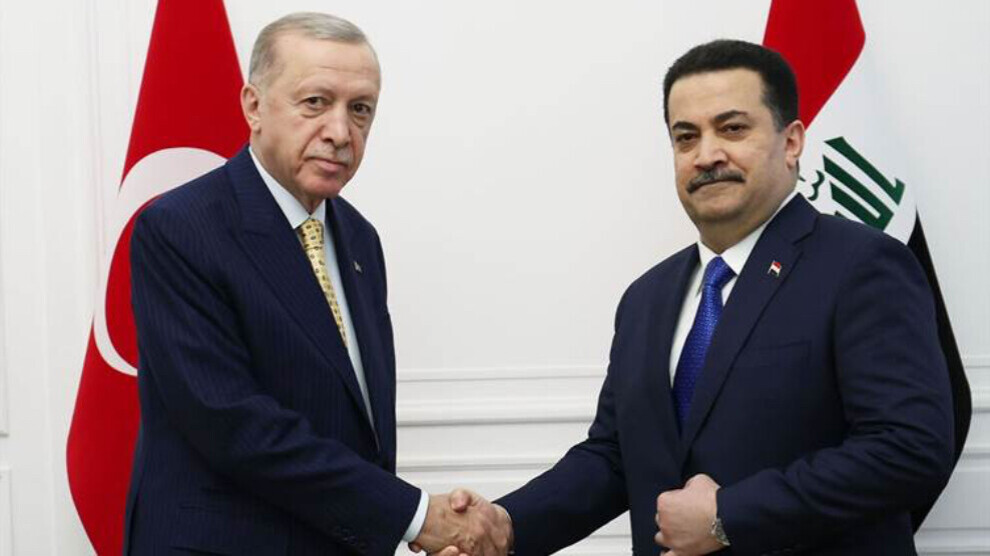Erdoğan meets with Iraqi officials in Baghdad after 12 years
Turkish President Recep Tayyip Erdoğan visited Iraq at a time when Turkey launched a new invasion offensive in the north of the country.
Turkish President Recep Tayyip Erdoğan visited Iraq at a time when Turkey launched a new invasion offensive in the north of the country.

After the Turkish state launched a new invasion attack in southern Kurdistan (northern Iraq), Turkish President Tayyip Erdoğan went on a tour to Baghdad and Hewlêr (Erbil).
Erdoğan's delegation included Foreign Minister Hakan Fidan, Interior Minister Ali Yerlikaya, Minister of National Defence Yaşar Güler, Minister of Trade Ömer Bolat, Minister of Transport and Infrastructure Abdulkadir Uraloğlu, Minister of Agriculture and Forestry İbrahim Yumaklı, Minister of Energy and Natural Resources Alparslan Bayraktar, Minister of Industry and Technology Mehmet Fatih Kacır, Presidential Communications Director Fahrettin Altun and Ambassador Akif Çağatay Kılıç, Chief Advisor to the President on Foreign Policy and Security.
Iraqi President Latif Rashid and Erdoğan met in Baghdad on Monday. The meeting was closed to the press and no information was given on what was discussed.
Erdoğan then met with Prime Minister Mohammed Shia Sudani. The Iraqi Prime Minister's Office announced that the two leaders would sign a "strategic framework agreement to expand co-operation".
The president of the occupying state will then go to Hewlêr (Erbil) and meet with KDP officials. The ruling KDP decorated the areas under its control with Turkish flags before Erdoğan's visit. The historical castle of Hewlêr was also covered with Turkish colours.
The main agenda of the talks is said to be the PKK. The Turkish state has been operating military bases in South Kurdistan for decades. These bases have increased exponentially in recent years. In addition, numerous invasion attacks have been carried out for years.
While Baghdad has been subjected to anti-Kurdish pressure from the Turkish state, in March, Iraqi Defence Minister Tabat al-Abasi ruled out the possibility of a "joint military operation" against the PKK, saying that Baghdad and Ankara would work to establish a "joint intelligence coordination centre" at the "appropriate time and place".